Choose the Best Compost Worms for Easy Home Vermicomposting – Get the Most Nutrient-Rich Compost Ever!
Having the best worms for vermicomposting makes a big difference. Learn which compost worms are ideal and which to avoid.

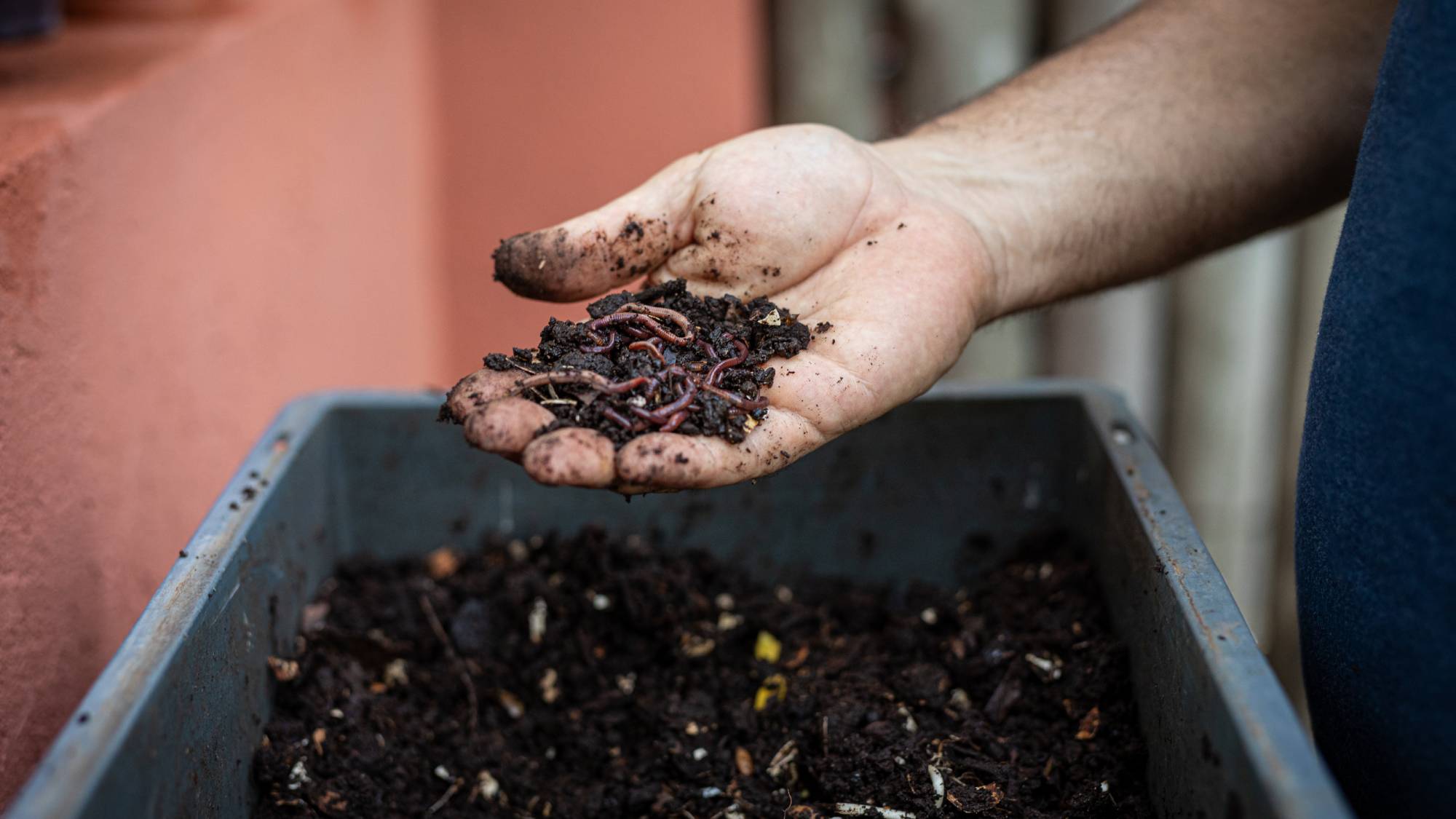
Sign up for the Gardening Know How newsletter today and receive a free copy of our e-book "How to Grow Delicious Tomatoes".
You are now subscribed
Your newsletter sign-up was successful
Worms are not welcome in the average home, but you may reconsider when you learn about the benefits of using worms for vermicomposting. Vermicomposting is a wonderful and efficient way to turn kitchen scraps like veggie peels and rotting fruit into a great soil amendment. The “motor” behind the vermicompost process is special “compost worms” that break down organic matter into nutrient-rich worm castings.
Why use vermicomposting instead of regular composting? Worm castings are rich in essential plant nutrients and contain microbes that are extremely beneficial to plants.
Let's dig in and learn a little more about which worms make the best vermicomposting partners.
Basics of Vermicomposting
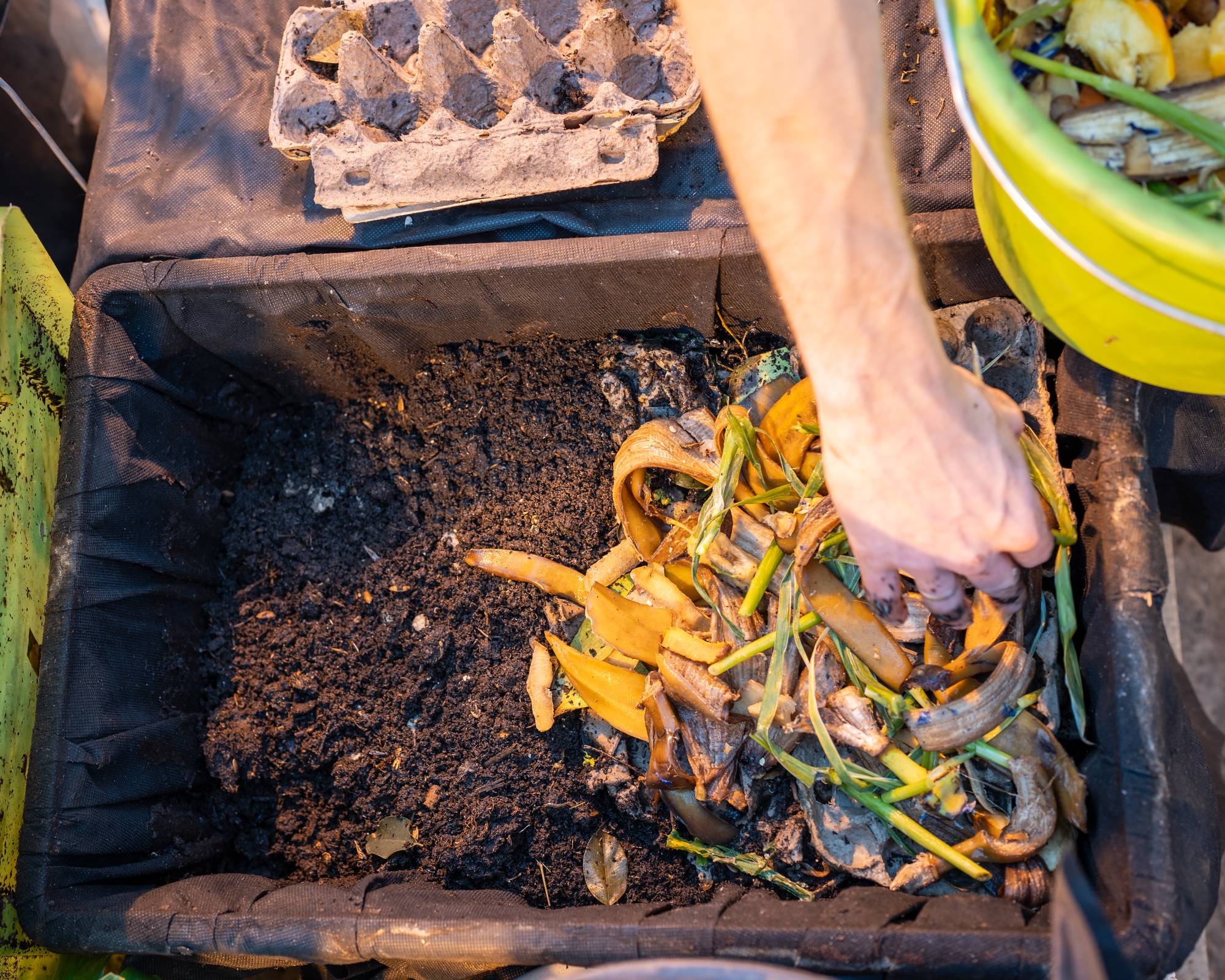
“Verm” means “worm” in Latin, and vermicomposting is a method of composting that utilizes worms. Regular composting depends on fungi and microorganisms to break down plant detritus. When you rely on worms, you leave most of the work to the worms. You don’t have to turn the compost bin or even touch a worm.
Vermicomposting is a quick, efficient way to convert kitchen scraps into a rich soil amendment with the help of earthworms. Vermicompost worms break down organic matter, such as kitchen scraps, into waste products called castings.
Although castings may be waste to the worms, they are a rich treasure for gardeners. Vermicompost is richer in essential plant nutrients such as nitrogen, phosphorous and potassium than traditional compost. It also contains microbes that help plants grow. (Want the nutrients of worm castings, but aren't really interested in rearing worms? No judgement here! You can purchase organic worm castings from Amazon.)
Best Worms for Composting
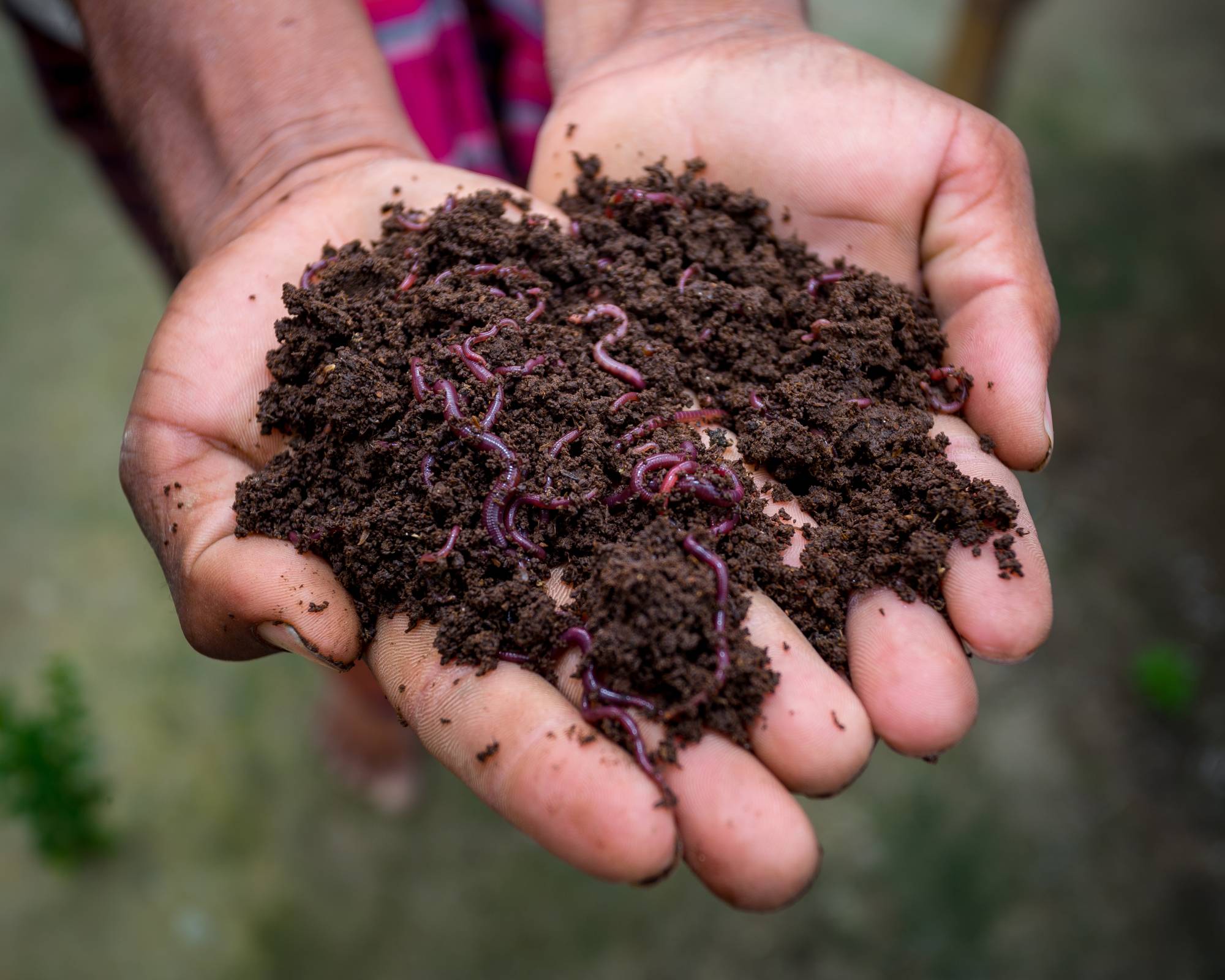
Seven species of worms are suitable for vermicomposting, but one is generally recommended, Eisenia fetida. These worms are commonly called red wigglers, manure worms, or brandling worms. Red wigglers are the best composting worms since they are adaptable, prefer dark or moist environments, thrive in a “bin” environment, and love to eat kitchen scraps. They produce high quality worm castings, and they are very easy to keep. You can purchase red wigglers from online retailers like Meme's Worms.
Sign up for the Gardening Know How newsletter today and receive a free copy of our e-book "How to Grow Delicious Tomatoes".
Worm Quantities
One pound (0.45 kg) of worms will do wonders in your composting. These worms can turn 65 pounds (29.4 kg) of garbage into mature compost in 100 days. But the quantity of worms to use in your bin depends on how many food scraps you are going to be composting.
Red wigglers eat 25 to 50 percent of their body weight per day. That means that if you are producing one pound or a pound and a half of food scraps each day, 2,000 worms, or two pounds (0.9 kg), will be fine.
However, if you are short on space or only produce a small amount of kitchen scraps per day, you can have a smaller set up. A little vermiculture container under your sink with 250 worms (1/4 pound) is a great place to start. The "Worm Bucket" indoor worm composter from Meme's Worms is compact and is a great starter kit for those who may be worm curious. Just 1 square foot of space is required!
Vermicomposting is a fun activity for the whole family and if you feed your worms regularly you'll have a steady supply of vermicompost for your garden.
Worms Not to Use for Vermicomposting
Not every type of worm will work in composting, and digging out worms in the garden for vermicomposting is not a good idea.
Be careful when you are buying the worms. Although vermicomposting is sometimes called “red worm composting,” this can be misleading. You should never purchase red worms from bait stores. Many of these are not red wigglers but rather an invasive species.
How to Start Vermicomposting
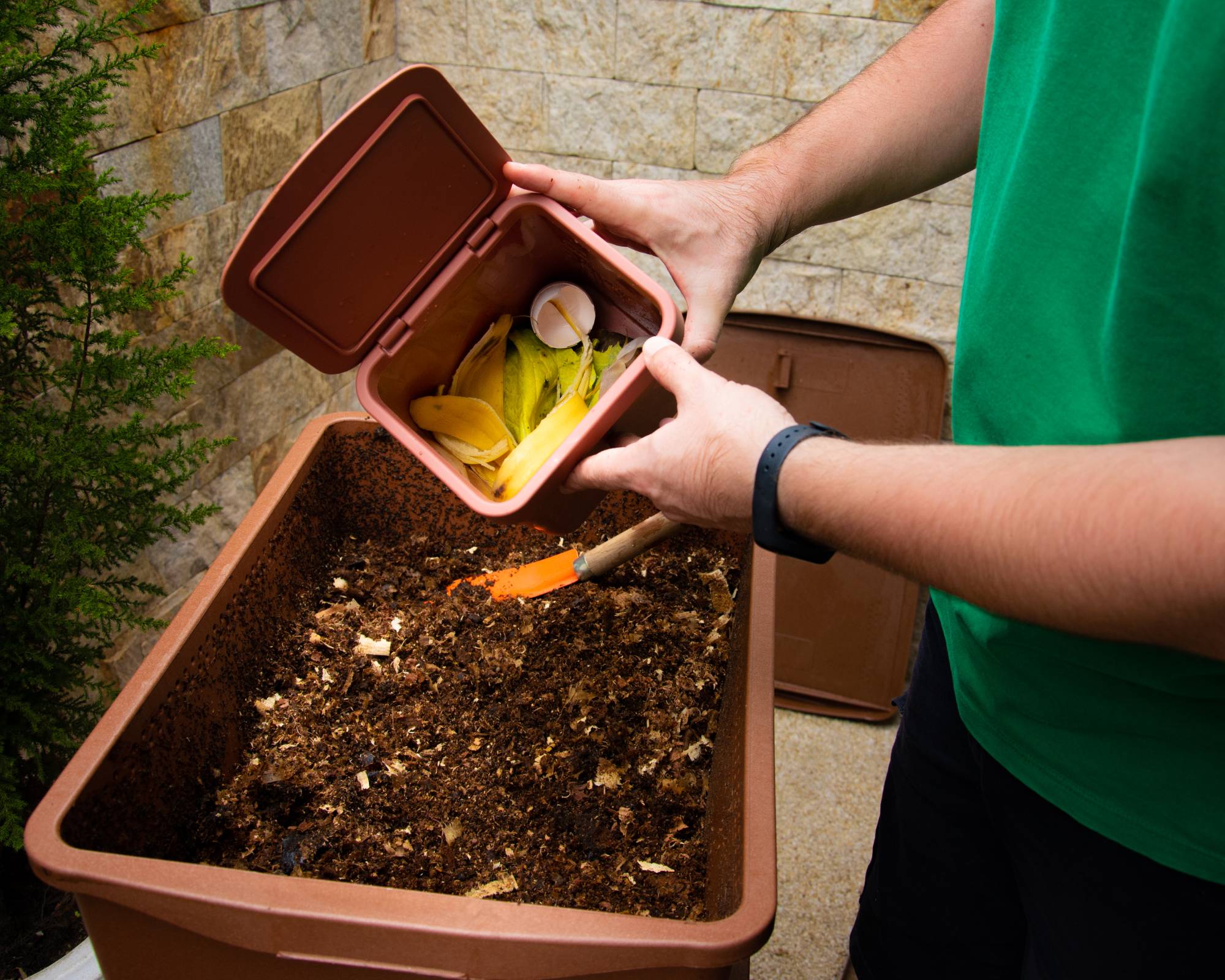
If you’ve set your bin up appropriately, you’ll be ready to add the worms. You need to add shredded newspapers, small pieces of cardboard, or coco coir to the bin as bedding material for your worm buddies and to cover up food waste.
Soak the bedding material first and wring out the excess water, then fill up the bin half full before adding the worms and a handful of garden soil. Add more bedding material on top of the worms to cover them.
To feed the worms, put a small mound of kitchen scraps into the bin, either in the corners or as a thin layer on top of the bedding. Cover up the scraps with a few inches of bedding material to keep out flies and keep the worm bin from becoming smelly. Don’t add more food until the worms eat this pile of scraps.
Make sure your scraps are cut into smaller pieces before you add them to the bin. Keep track of how long it takes your worms to eat certain amounts of food waste and adjust your feeding schedule accordingly.
You can add most any kitchen scraps as long as you avoid meat, dairy, citrus, onions, and garlic. Worms will even munch through crushed egg shells, coffee grounds, and tea leaves.
Worm Compost Essentials
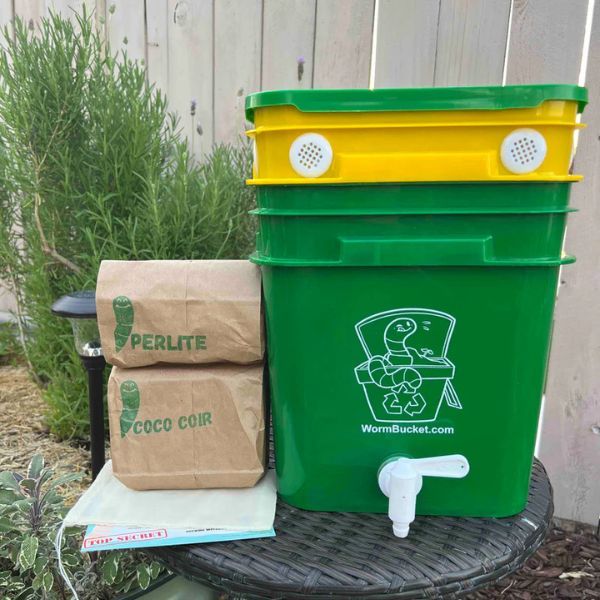
This "Worm Bucket" kit includes everything you need to get started. Just add worms!
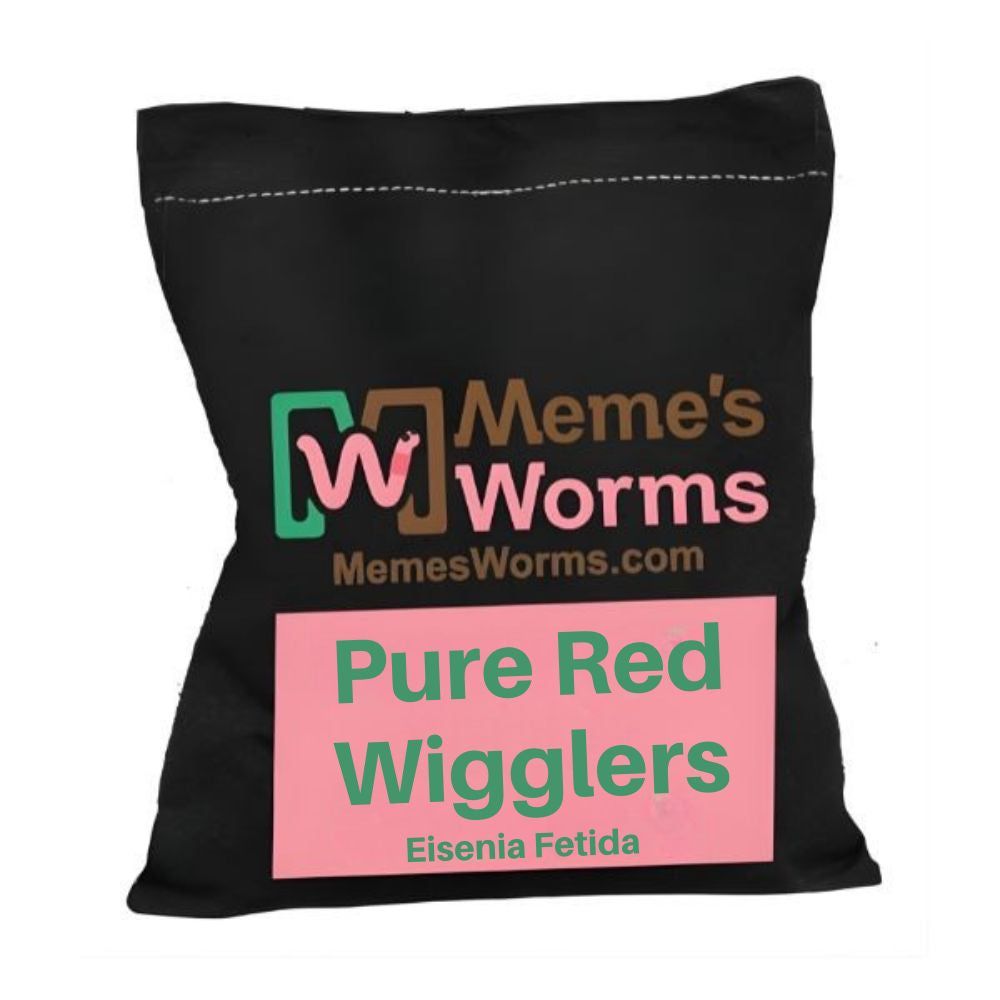
Red wigglers are the best worms for vermicomposting, especially in a vermiculture bin.
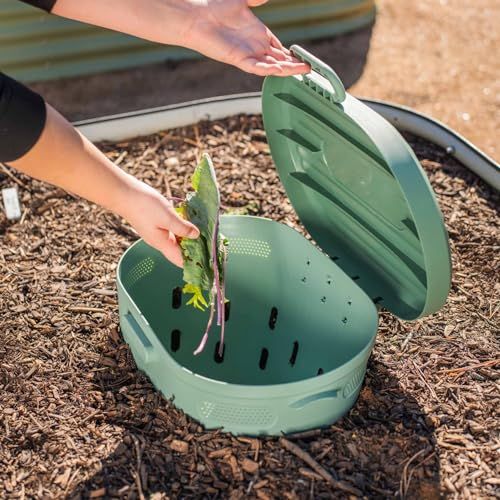
In-ground vermicomposting is another great option to break down food waste into nutrient-rich compost.

Teo Spengler is a master gardener and a docent at the San Francisco Botanical Garden, where she hosts public tours. She has studied horticulture and written about nature, trees, plants, and gardening for more than two decades, following a career as an attorney and legal writer. Her extended family includes some 30 houseplants and hundreds of outdoor plants, including 250 trees, which are her main passion. Spengler currently splits her life between San Francisco and the French Basque Country, though she was raised in Alaska, giving her experience of gardening in a range of climates.
- Jackie CarrollWriter
- Kathleen WaltersContent Editor